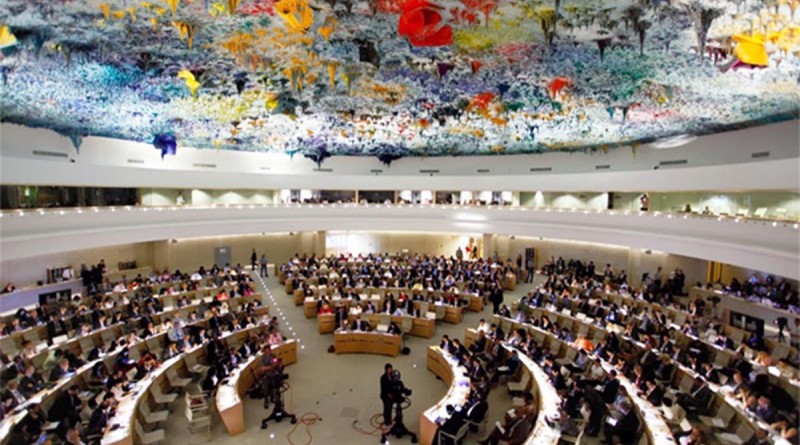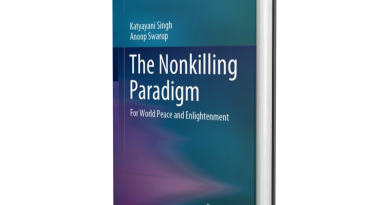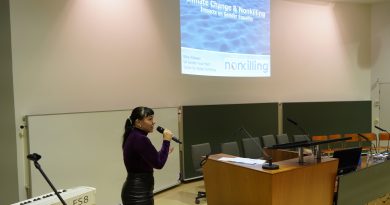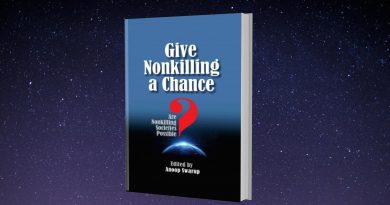A busy month for CGNK at the UN Human Rights Council
It is when we value life that life improves. And when we improve life through the United Nations’ work, we do so for all humanity.
They are two types of work at the Human Rights Council, a UN body tasked with promoting and protecting human rights worldwide: thematic or country work. Forwarding the awareness of nonkilling possibilities, transformations and practices, CGNK does both. This time it was mostly country related work. The Universal Periodic Review (UPR) is a mechanism used by the Human Rights Council to periodically examine the human rights’ performance of all 193 UN Member States. This month we contributed to the enhancement of life and peace policies and practices in Eritrea, Vanuatu, Dominican Republic, New Zealand, Lesotho, Spain, Grenada, Guyana, Kiribati and Kenya.
We have strong contacts with the Diaspora of Eritrea and fair ones with their diplomats. We made a first oral statement recalling the goods of the country, showing examples of successes elsewhere and calling for more love and care, respect for life, by the leadership and for the people of Eritrea. In the second statement, a more technical one, we called for integrity between words and deeds regarding freedom of religion. We stated that indefinite military or public service was equal to slavery and we called for free elections.
- Eritrea: CPTI Joint Oral Statement (2019-07-04) (760 downloads )
- Eritrea: Oral Statement (2019-07-02) (724 downloads )
We made oral statements for the final approval of the Universal Periodic Reviews of Vanuatu, the Dominican Republic and New Zealand. The oral interventions of CGNK’s Main UN Representative, Christophe Barbey, at the consideration of the UPR outcomes of Vanuatu and the Dominican Republic can be watched in the linked two videos. Regretfully, Vanuatu is the first country to decline ratifying the Convention on the prevention and punishment of the crime of genocide. We hope this is an unfortunate mistake as we continue to aim firmly for the universal ratification of this essential nonkilling convention.
- Vanuatu: 1. CGNK Submission (2019-07-12) (562 downloads )
- Dominican Republic: 1. CGNK Submission (2019-07-12) (553 downloads )
For New Zealand we demanded the ratification of the genocide convention by the independent States of the Cook Islands and of Niue; free countries for which New Zealand does part of the diplomatic work. Usually, there is always at least one country, often Armenia or Rwanda, recommending to the State Under Review the need for ratifying the genocide convention. None did so this time for the Dominican Republic, so CGNK called for this important step; now and again if need be.
Preparing the passage of other countries for their UPR, we made a submission for Lesotho, where we presented what shall be a fully nonkilling, nonmilitarised and peaceful society. We did a submission for Spain where we highlighted various important life issues: a remnant of the death penalty in the Constitution, police brutality in Catalonia for which we called for more independent control and overview, a duty of memory for still unknown mass graves from the Spanish Civil War and, following suggestions by local NGOs in Spain, we also highlighted serious violations of international environmental laws in the extractive industry. Finally, we did smaller submissions for Grenada, Guyana, Kiribati and Kenya calling for the ratification of the conventions on genocide and enforced disappearances and other life related treaties or issues.
The work at the UN would not be possible without your strong support. Please remember to donate generously … to life, as to CGNK to sustain our work, here and at the UN. We have an open position for an intern or a traineeship, ideally in Geneva or elsewhere in Switzerland, but for an independent and motivated person, it can also be developed as an online collaboration.




